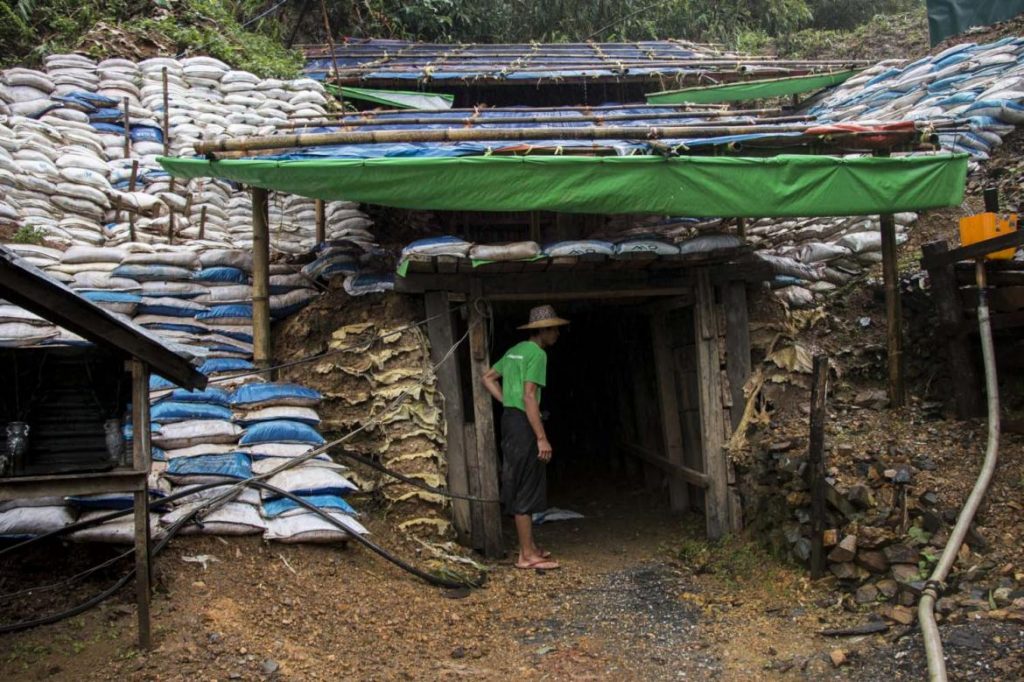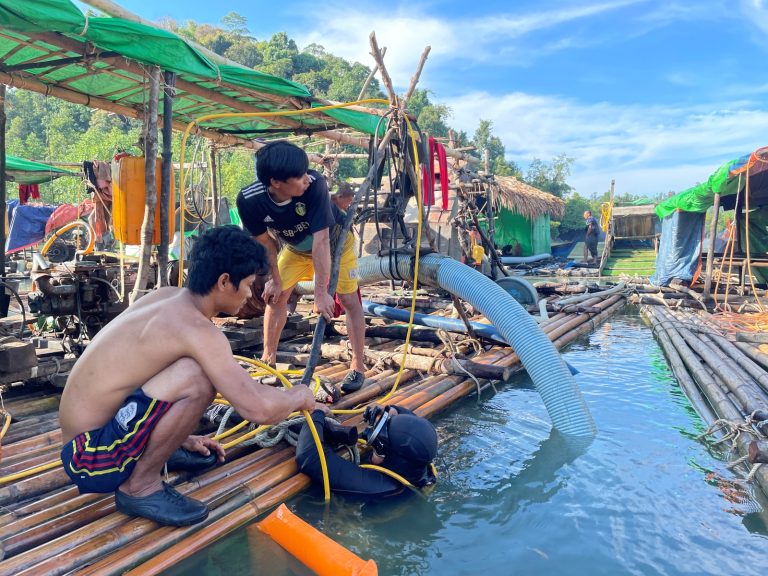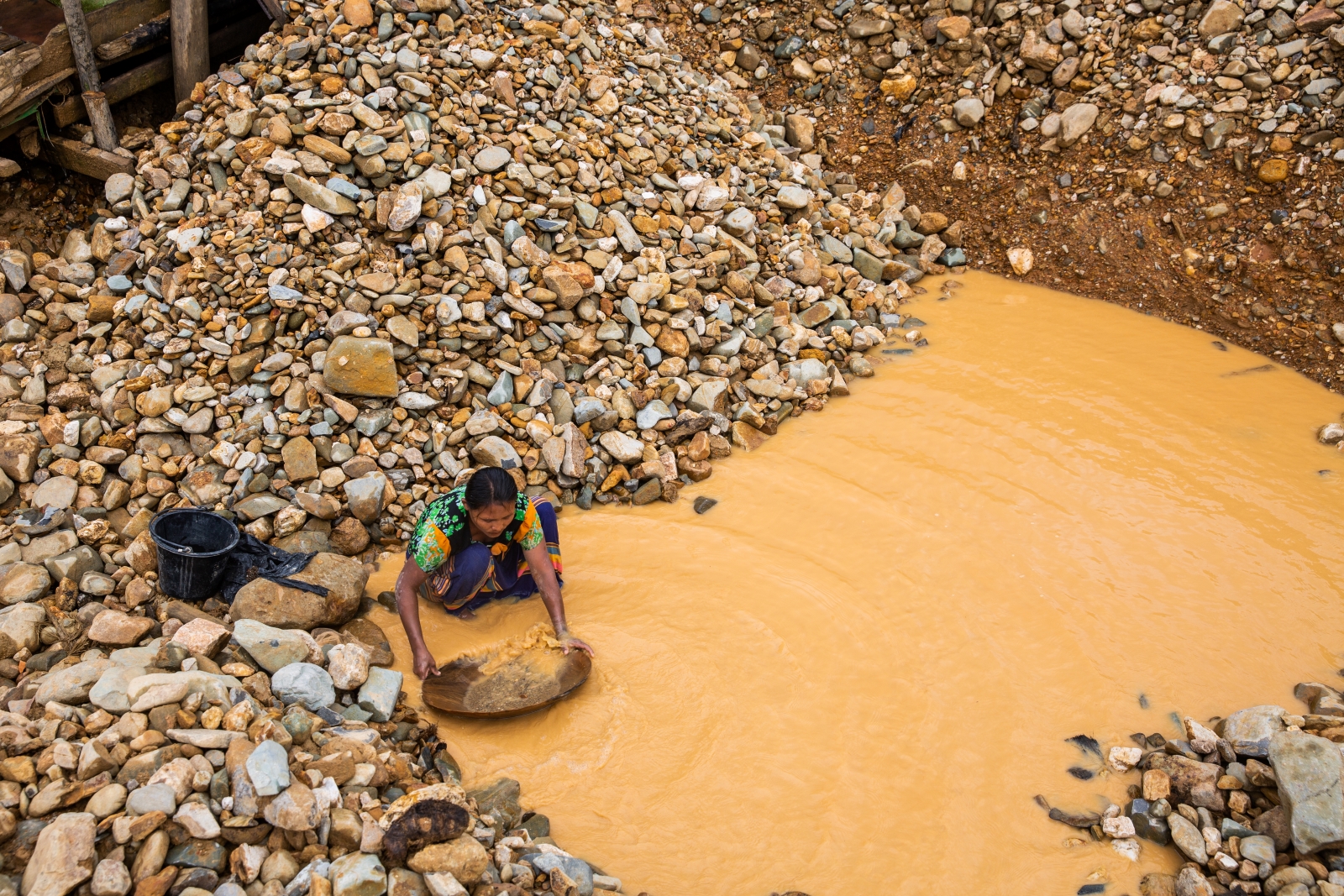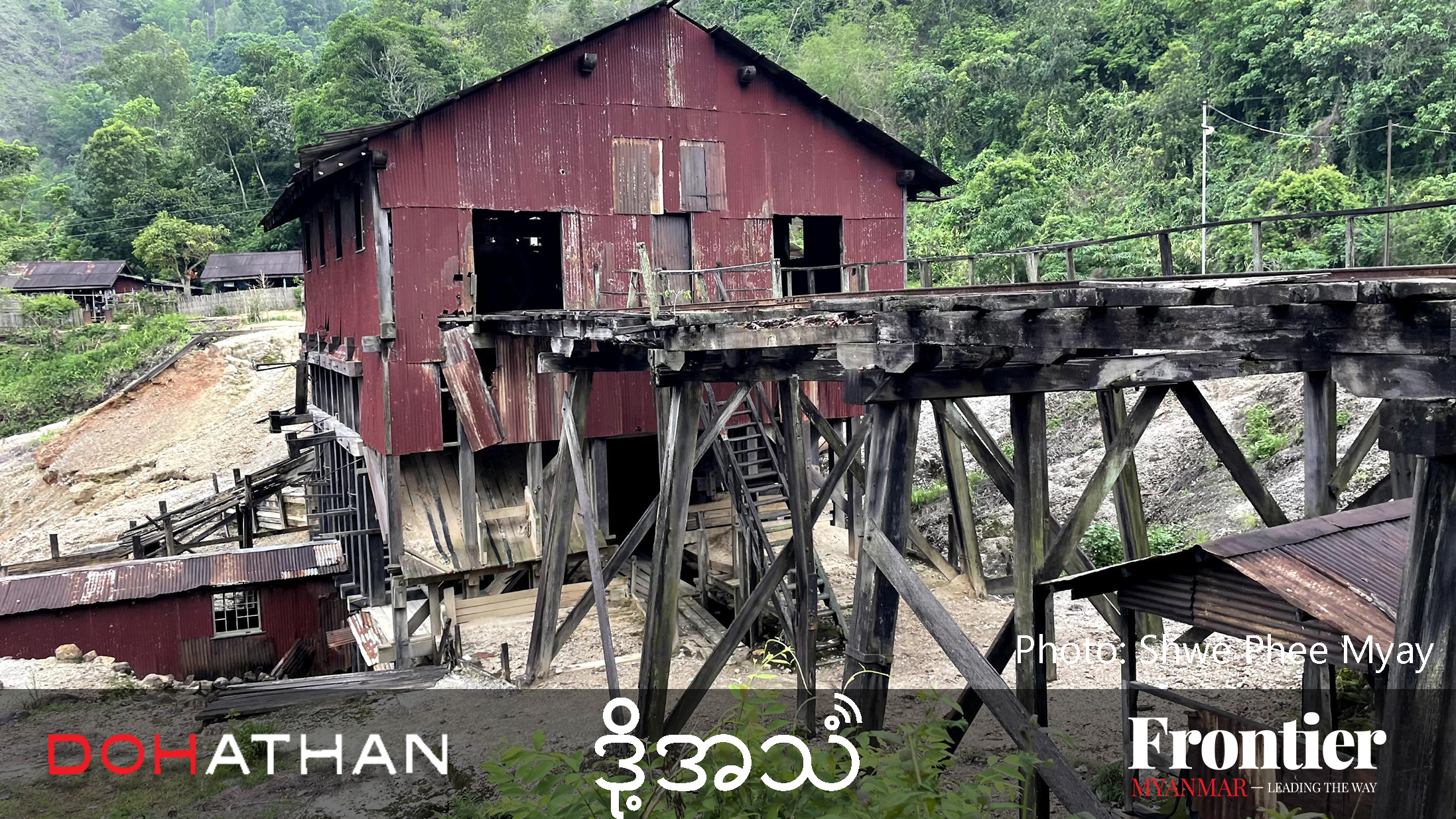Illegal mining is flourishing at the troubled Moehti Moemi goldfields in Mandalay Region and some say weak law enforcement and corruption are to blame.
By KYAW YE LYNN | FRONTIER
IT IS MORE than 18 months since the Ministry of Natural Resources and Environmental Conservation ordered mining companies at the Moehti Moemi goldfields to suspend operations over outstanding bullion payments to the government.
Legal mining at the goldfields, near Yamethin in Mandalay Region, was halted in February 2018 following a long-running dispute between the ministry’s No. 2 Mining Enterprise and the National Prosperity Company Ltd, which in 2011 was granted a permit to mine for 17 years on 6,105 acres (2,470 hectares) in block A, where operations were previously restricted by law.
However, sources have told Frontier that illegal, small-scale mining is thriving at the goldfields because of weak law enforcement and corrupt officials.
The illegal mining mainly involves residents of Moehti Moemi and people from other nearby villages, said the operations manager of a company that was in a partnership with NPC before its permit was cancelled, who spoke to Frontier on condition of anonymity due to fear of reprisals.
Support more independent journalism like this. Sign up to be a Frontier member.
“The mine shafts were abandoned more than a year ago because we have nothing to do there,” he said in a telephone interview on August 31.
“We assigned some staff to keep an eye on the shafts and to maintain machinery and equipment,” he said, but added that they were unable to prevent illegal mining by groups of 20 people or more. “They mostly work at night time, but sometimes they work during the day.”
He said the company does not report the illegal mining to the police or the local authorities because “the mines are now longer ours; as long as the illegal miners do not destroy our property we ignore them”.
He accused soldiers, police and staff from No. 2 Mining Enterprise assigned to provide security and guard the goldfields of being complicit in the illegal mining.
“At the very least, they take bribes, which is why the illegal miners have no fear of mining there,” he said, adding that several other companies faced a similar situation.
A man who has lived in Moehti Moeni village for about ten years, and whom Frontier will call U Tin Min to protect his identity for safety reasons, said its population had declined since the mining halt was ordered.
“This village used to have up to 20,000 people, who came from throughout the country, but I think only a few thousand are left,” he told Frontier by telephone on August 29.
“They left because there are no jobs since the mining companies suspended operations,” he said.
Despite the exodus from the village, Tin Min said there had also been newcomers.
“These new people come here for illegal mining; that’s very clear because there are no [other] job opportunities,” he said.
Frontier has tried repeatedly since early July to arrange an interview with the ministry to ask what it was doing to prevent the illegal mining. The ministry agreed to the request but as of September 27 had not set a time for the interview.
The fugitive
NPC chairman U Soe Tun Shein, who has gained notoriety for donating lavishly to Buddhist nationalist group the Buddha Dhamma Parahita Foundation (formerly called the Association for the Protection of Race and Religion, or Ma Ba Tha), was declared a fugitive by the police in August 2018 after an arrest warrant was issued over allegations by the ministry that his company had failed to meet contractual obligations for payments in bullion. The ministry says NPC owes the government 1.78 tonnes of gold.
In an interview with Frontier at his office in Yangon’s Hmawbi Township in June last year, Soe Tun Shein blamed the dispute on No. 2 Mining Enterprise managing director U Than Daing.
“He previously told us there will be no problem with the outstanding gold we owed to government,” Soe Tun Shein said. Than Daing had said the matter was negotiable but later made “false allegations” against NPC, he alleged.
“If [Than Daing] continues acting this way, he will also not be OK,” he said.
Soe Tun Shein’s allegation may have been justified.
Than Daing was arrested on corruption charges in Nay Pyi Taw on April 1 this year in a case brought by the Anti-Corruption Commission. The ACC alleged in a statement issued the same day that an investigation it conducted found that Than Daing had abused his position by requesting and obtaining a payment of about K3.3 million from a company hired to do landscaping work on land he owned at Nay Pyi Taw. The statement also alleged that Than Daing got a company to pay K4.2 million in hotel fees for a family holiday at Ngapali Beach in Rakhine State during the Thingyan water festival in 2016.
The ACC statement said Than Daing would face charges under section 56 of the Anti-Corruption Law, under which political office holders convicted of graft are liable to a maximum penalty of 10 years’ imprisonment. ACC spokesperson U Kyaw Soe told Frontier in August that NPC was both the source of the complaint and the company that allegedly made both the payments to Thaung Daing.
But the ACC’s interventions did not stop there. On April 3 this year, it opened cases in Nay Pyi Taw against the NPC’s managing director, U Tun Aung Soe, and two company employees, alleging that they had made false claims aimed at defaming police and Ministry of Natural Resources and Environmental Conservation officials.
Tun Aung Soe was charged under section 59 of the Anti-Corruption Law, for fabricating a complaint to the ACC. The two employees were charged under section 59, as well as section 63, for abetment.
Under a 2018 amendment to the law, anyone convicted under section 59 faces a maximum penalty of three years’ imprisonment and a fine.
The charges came after the ACC investigated complaints by Tun Aung Soe that mining officials and police had taken bribes from eight companies and illegal miners in block A at the Moehti Moemi goldfields.
Kyaw Soe said it was the first time the ACC had taken action over an allegedly fabricated bribery complaint. “It is obvious that the [false] claim was made intentionally; that’s why we took action,” he said.
In December last year, police launched an investigation into Soe Tun Shen, in his capacity as executive director of the Asian Prosperity Export Import Co Ltd, and three other directors over a criminal case launched by the Global Treasure Bank over the alleged failure to repay two loans totalling K1.5 billion.
Online publication The Irrawaddy reported that the bank’s decision to file a criminal complaint followed delays in civil proceedings it brought against Asian Prosperity in 2013 over the loans, which were taken out in 2006.
Frontier sought a response from NPC but was told by its office in Nay Pyi Taw that it did not wish to comment.







